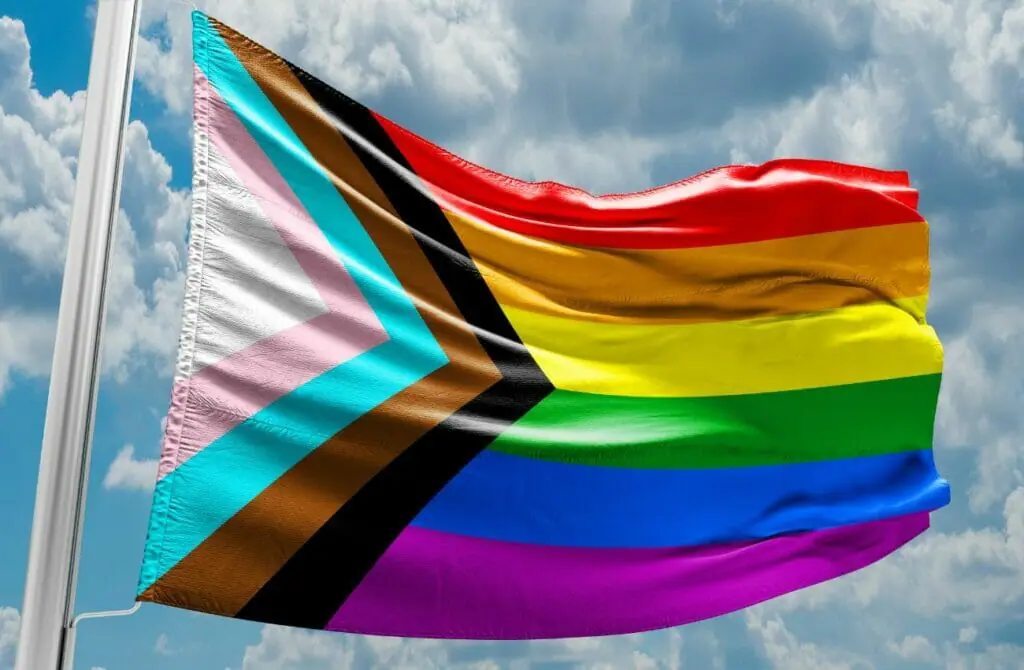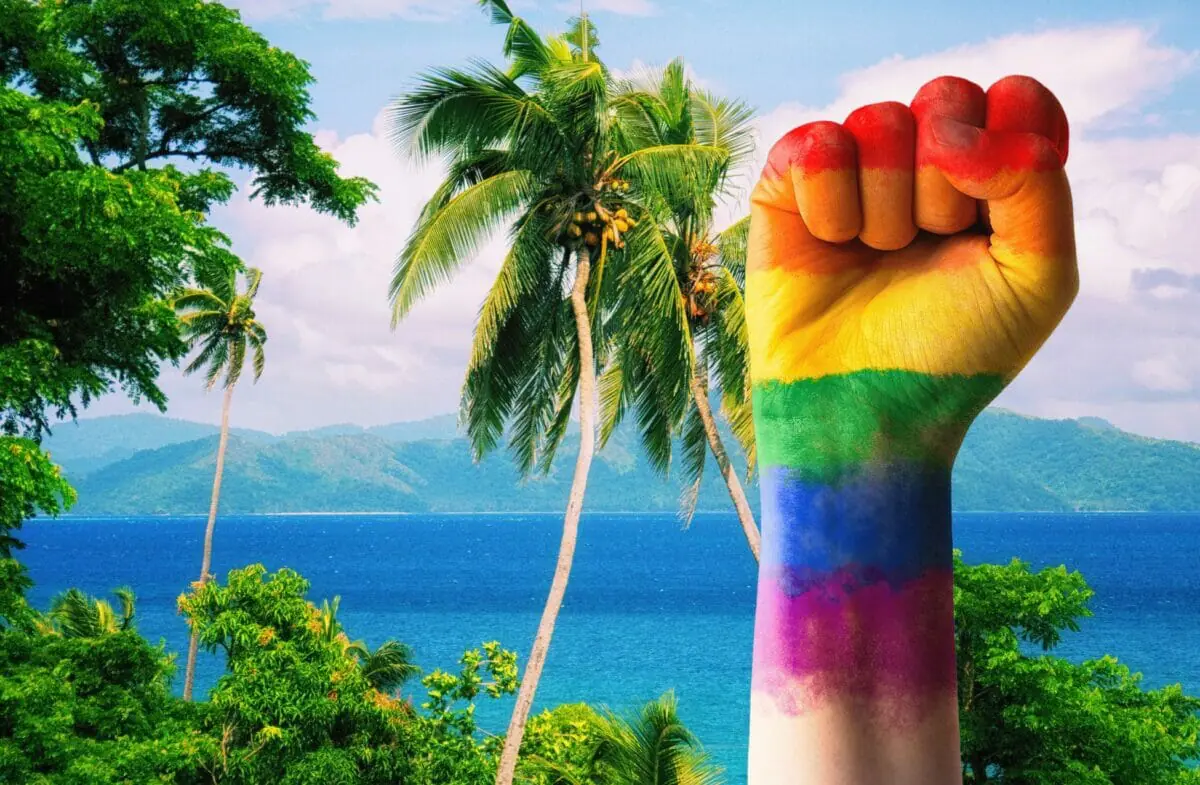Over the years, LGBT rights in Fiji have experienced significant progress, evolving rapidly to create a more inclusive environment for the local residents.
Homosexual conduct has been legal since 1 February 2010 under the Crimes Decree 2009, and Fiji’s constitution is one of the few in the world that bans discrimination on the basis of sexual orientation and gender identity.
However, it is worth noting that same-sex marriage remains illegal in the country, and LGBT people may still encounter legal challenges and barriers to complete equality.
While Fiji has made great strides in terms of LGBT rights, it’s essential for both local people and tourists to remain cautious and vigilant, as situations can change rapidly, and there may be individuals with ill intentions.
It is advisable to seek current advice and information before traveling to ensure you are aware of the most up-to-date conditions. Keep in mind that local LGBT advocacy groups can be a valuable resource for guidance and support during your stay in Fiji.
To further protect the rights of the LGBT community, steps can be taken, such as promoting awareness, education, and collaboration between various stakeholders, including government authorities, civil society groups, and human rights organizations.
By working together to address discrimination and fostering a more inclusive environment, Fiji can continue on its path toward greater equality for all members of its diverse society.
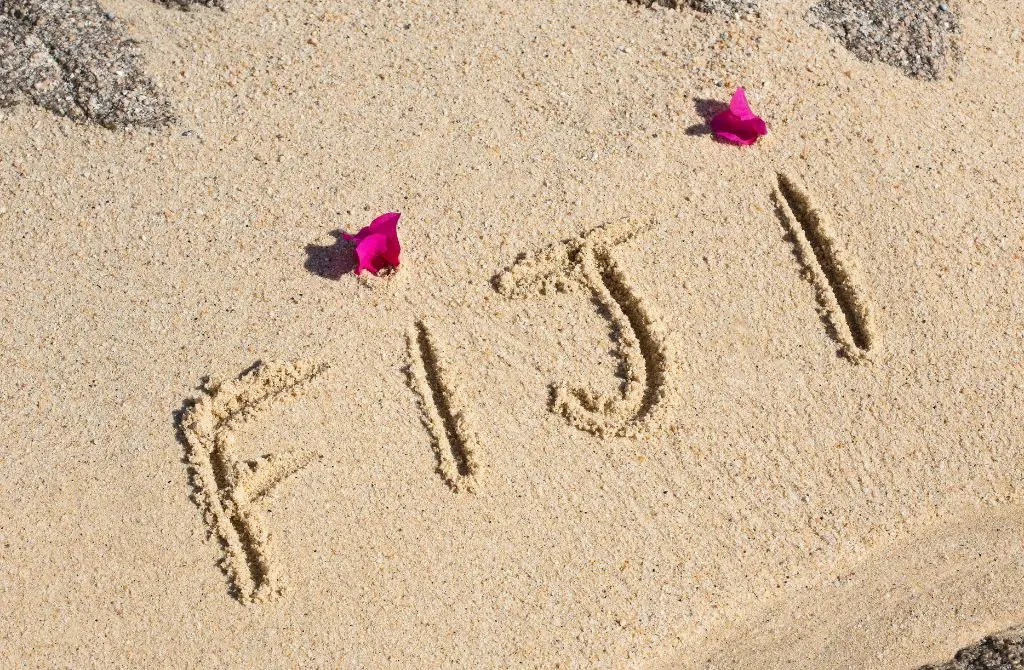
History of LGBT Rights In Fiji
The history of LGBT rights in Fiji can be traced back to its indigenous culture, where the existence of a third-gender population was recognized and accepted. Known as the vaka sa lewa lewa (vakasalewalewa), these individuals were assigned male at birth but dressed, acted, and behaved as females, similar to the fa’afafine of Samoa, the māhū of Hawaii, and the whakawāhine of New Zealand.
Fiji has made significant progress in recent years when it comes to LGBT rights. The 2013 Constitution of Fiji enshrines protection from discrimination on the grounds of sex, gender, sexual orientation, gender identity, and gender expression. It is the only constitution in the world that covers anti-discrimination on the grounds of gender expression.
In 2010, same-sex relations were decriminalized, and homosexual activity is no longer considered a criminal act under Fiji’s Crimes Decree. The sodomy law that previously criminalized homosexual activity has been repealed. This change in legislation allowed for safer and more open visibility of LGBT individuals in Fiji.
Fiji also engages with the international community when it comes to LGBT rights. The country is involved in the United Nations Human Rights Council, where it participates in discussions and votes on resolutions related to LGBT rights. This involvement in the United Nations reflects a growing commitment from Fiji to uphold and protect the rights of its LGBT citizens, as well as that of tourists.
While Fiji has made commendable strides towards the recognition and protection of LGBT rights, it is essential for travelers to remain vigilant and seek current advice before traveling, as situations can change rapidly. Both locals and tourists should be aware of the potential presence of bad actors and always prioritize personal safety.
Several organizations continue to advocate for LGBT rights in Fiji, helping to ensure that the rights of locals and tourists alike are respected and upheld.
Maintaining a professional and authoritative tone when discussing LGBT rights in Fiji is essential to accurately convey the progress made and the challenges that remain for LGBT individuals. It is also crucial to recognize the difference between the experiences of local residents and tourists when discussing LGBT rights.
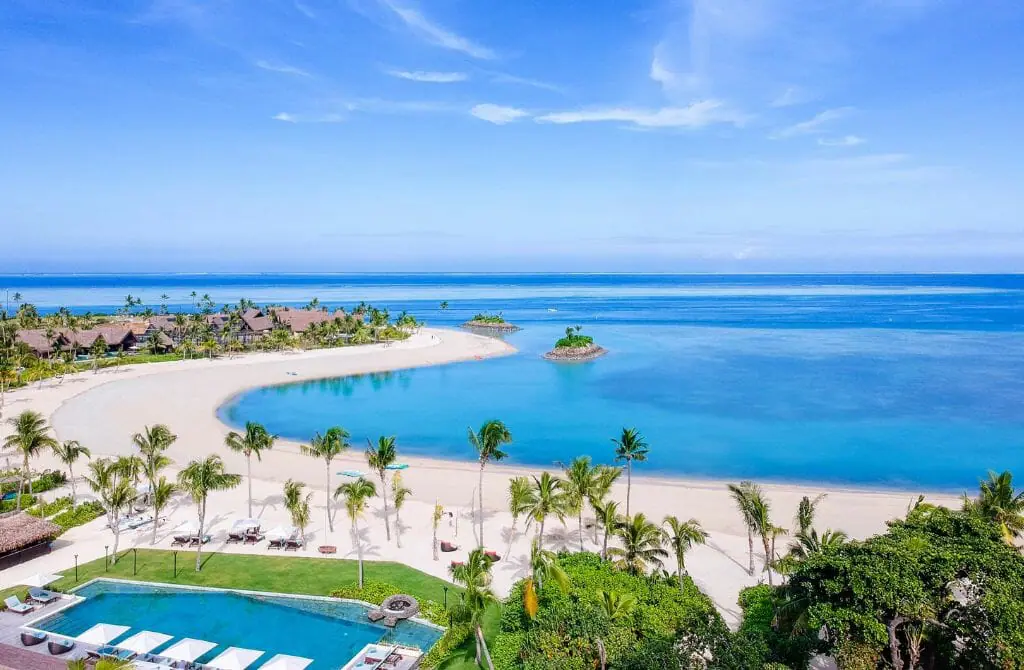
The LGBT Legal Situation In Fiji
LGBT rights in Fiji have seen considerable progress over the years, yet some legal challenges still persist for the local LGBT community. The 2013 Constitution of Fiji enshrines protection from discrimination on the grounds of sex, gender, sexual orientation, gender identity, and gender expression. It is crucial for both residents and tourists to be aware of the legal landscape in Fiji concerning LGBT rights.
Fiji has several laws that protect the LGBT community, such as anti-discrimination laws that cover areas like employment and housing. Under the Employment Relations Promulgation 2007, discrimination based on sexual orientation and gender identity is prohibited.
The constitution also entails that every individual should not be unfairly discriminated against, considering their personal characteristics or circumstances such as race, ethnic origin, color, place of origin, gender, sexual orientation, etc.
However, same-sex marriage is still not legal in Fiji, and the Marriage Act does not recognize civil unions or domestic partnerships. The legal situation concerning gender recognition is ambiguous, with no clear guidelines on changing one’s legal gender.
Conversion therapy, a controversial practice that aims to change an individual’s sexual orientation or gender identity, does not have specific legal regulations in place in Fiji. While there are no known reports of this practice in the country, it is essential to stay vigilant and seek the support of LGBT advocacy groups if required.
For LGBT travelers, it is crucial to stay informed about the latest legal developments and to seek current advice before traveling. Situations can change rapidly, and information may become outdated. Being cautious and vigilant while staying connected to local or international advocacy groups can help ensure a safe and enjoyable experience in Fiji.
In summary, while Fiji has made significant strides in ensuring the rights and protection of its LGBT citizens, challenges still remain. Understanding the legal situation is crucial for both locals and tourists alike, as it can help navigate the complexities surrounding LGBT rights and ensure a safe and secure environment for all.
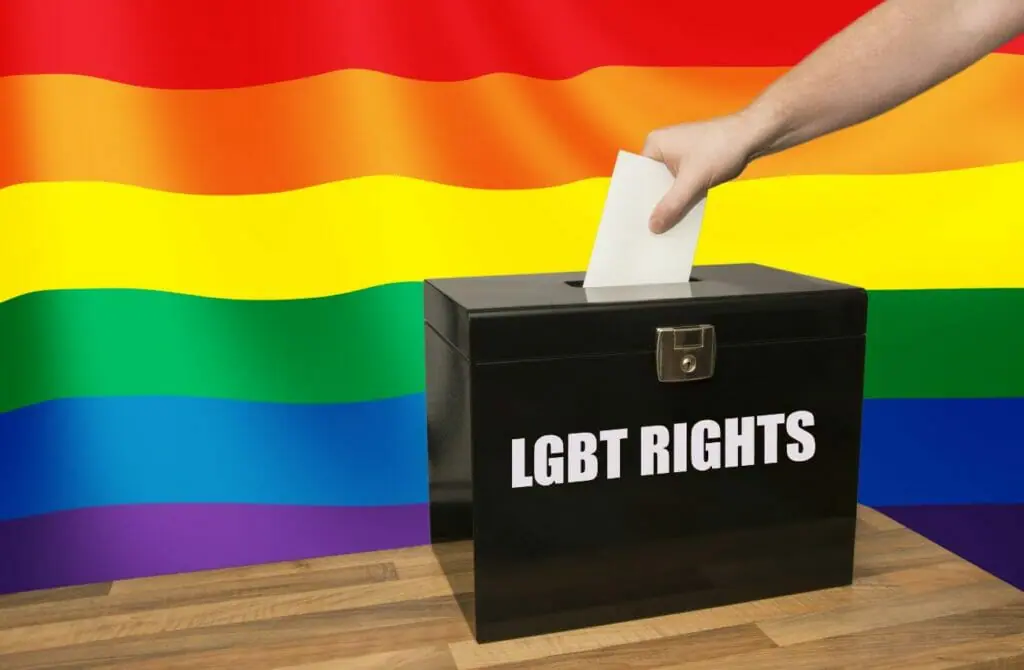

The LGBT Social Situation In Fiji
In Fiji, the social situation for LGBT individuals is gradually progressing, but challenges remain. While the 2013 Constitution enshrines protection from discrimination based on sex, gender, sexual orientation, gender identity, and gender expression, LGBT people in Fiji still face various forms of societal discrimination.
Discrimination and violence towards LGBT people can manifest in various forms, including bullying in schools and workplaces, as well as mental health issues stemming from societal prejudice and lack of acceptance. Religion plays a significant role in Fijian culture, and conservative religious beliefs can sometimes contribute to negative attitudes towards the LGBT community.
In the realm of education, there is currently a lack of comprehensive sex education in the country, which can perpetuate misunderstandings and misinformation about diverse sexual orientations and gender identities. Moreover, while many LGBT individuals experience growing acceptance in urban areas, the situation can be more challenging in rural communities.
For both local individuals and foreign tourists, it is important to be cautious and vigilant, as situations can change quickly, and there may be bad actors who perpetuate violence or discrimination against LGBT people. Before traveling, seek current advice from reliable sources and be aware of the local context.
In terms of advocacy, the Rainbow Pride Foundation (RPF) is a notable organization in Fiji that works to advance the rights and welfare of LGBT individuals. They strive to ensure that all people can live with dignity and without fear of marginalization.
While progress has been made in Fiji regarding LGBT rights, the social situation is still evolving and can vary among communities and individuals. Remaining informed, vigilant, and respectful of local contexts is crucial for both local LGBT people and foreign visitors alike.
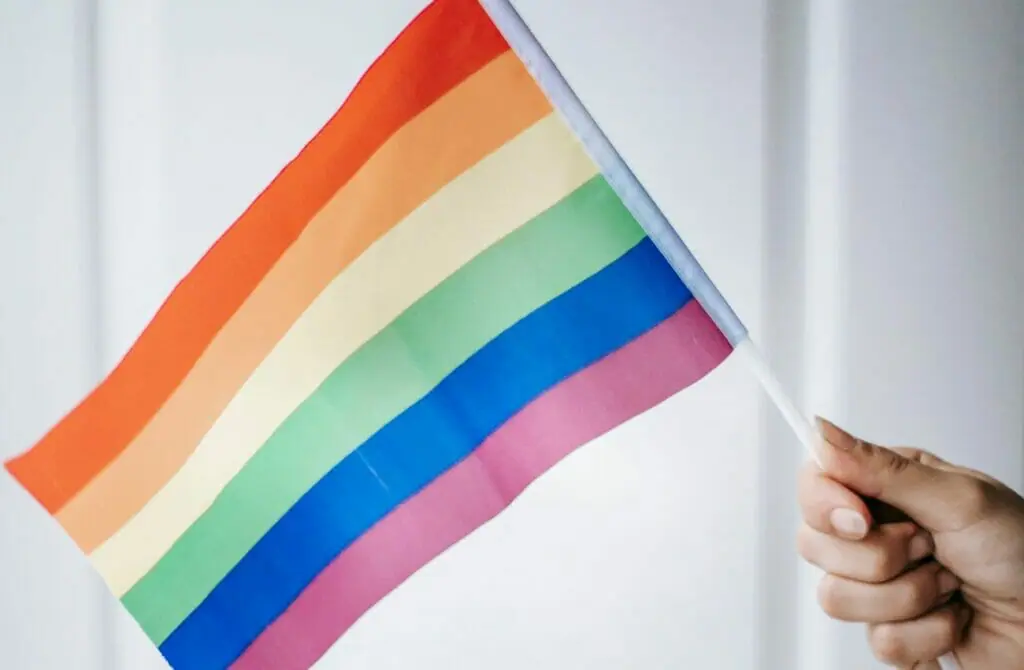
Trans Rights In Fiji
In Fiji, transgender individuals and those with diverse gender expressions face several challenges. They often confront high rates of violence, abuse, and harassment and are not widely represented in public, private, or political sectors.
The 2013 Constitution of Fiji enshrines protection from discrimination on the grounds of sex, gender, sexual orientation, gender identity, and gender expression. Despite the legal framework, transgender people still experience difficulties in obtaining legal recognition and protection.
Legal gender recognition is crucial to ensuring that transgender individuals in Fiji have access to fundamental rights and protections. This effort encompasses not only recognizing the preferred gender of an individual on official documents but also safeguarding rights such as access to healthcare, education, and employment opportunities. While there is no official legal recognition of a third gender, advocacy groups continue striving for progress in this area.
Bullying is another significant issue impacting the transgender community in Fiji, affecting both local residents and tourists. To address this concern, it is essential for individuals to be informed about the current situation and remain vigilant while traveling or residing in the country.
Since conditions can change rapidly, and there may be inaccurate or outdated information, it is advisable to seek current advice before traveling or making any decisions.
Several LGBT advocacy groups are active in Fiji, working to improve the rights and protections for transgender individuals. These organizations seek to raise awareness, foster tolerance, and effect change in policy and legislation. Collaborating with such groups may allow travelers and residents to better comprehend the local situation and contribute to creating a more inclusive and supportive environment.
While the legal framework in Fiji encompasses various protections for transgender people, the actual implementation of such rights remains limited. Ensuring the legal recognition and protection of transgender individuals is crucial for advancing LGBT rights in the country.
Building partnerships and engaging with advocacy groups can contribute to promoting awareness, understanding, and change for the transgender community in Fiji.


The Future For The Queer Community In Fiji
As Fiji continues to grow in acceptance and support of the LGBT community, it is important to consider the future of LGBT rights in the country. This includes factors such as equality, expression, involvement of the United Nations, human rights advancements, constitutional changes, and the impact of age on the perception of LGBT rights.
In order to create a more inclusive environment for all, Fiji must continue its efforts in establishing equal rights for its LGBT citizens. This involves addressing discrimination in housing, employment, and other areas of life-based on sexual orientation and gender identity.
As society becomes more accepting, the expectations of the United Nations and other international human rights organizations play an important role in encouraging progress.
One key aspect of greater equality for the LGBT community is the freedom of expression. As mentioned earlier, Fiji is a relatively safe destination for LGBT travelers, but the fight for local LGBT rights still faces hurdles.
It is crucial for Fijian society to protect the freedom of speech and expression as well as foster an environment where being part of the LGBT community does not come with marginalization or judgment.
Locally, organizations such as the Rainbow Pride Foundation (RPF) play a pivotal role in advocating for LGBT rights in Fiji. This includes striving for legal recognition of same-sex marriage and addressing general societal prejudice against the community. As the younger generation becomes more involved in activism, there is hope for a more understanding society.
It is of utmost importance for travelers to be aware of the local situation and seek up-to-date information before embarking on their journey. By staying current with the evolving landscape, visitors can ensure a safe and respectful experience while enjoying the rich cultural offerings of Fiji.
In summary, the future of LGBT rights in Fiji lies in the growth of equality, protection of freedom of expression, influence from international organizations, and the efforts of local advocacy groups. Staying informed and involved in ongoing progress will lead to a brighter, more inclusive future for both locals and travelers alike.
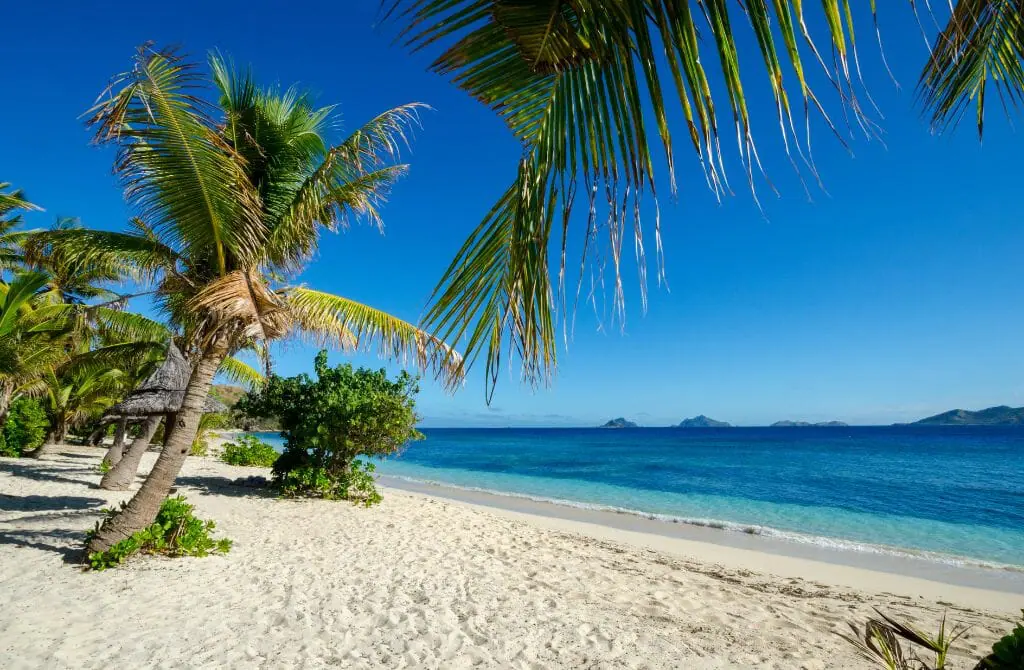
Protect Yourself While Travelling In Gay Fiji
In Fiji, LGBT rights have made progress in recent years, with the decriminalization of consensual homosexual conduct in 2010 and constitutional provisions against discrimination based on sexual orientation, gender identity, and gender expression since 2013.
However, it is crucial for both locals and tourists to remain cautious and vigilant, as situations can change quickly, and there are always individuals who may not adhere to the legal protections in place.
To ensure safety and dignity, it is important to be aware of current conditions and reliable sources of information. For instance, contacting local LGBT advocacy organizations, such as the Drodrolagi Movement (DroMo) or the Pacific Sexual & Gender Diversity Network (PSGDN), can provide valuable insights on navigating daily life, housing, and employment in Fiji as an LGBT person.
In terms of employment, while the Fijian constitution prohibits discrimination based on sexual orientation and gender identity, it is still imperative to research individual employers’ policies and practices. To advocate for one’s rights in the workplace, it may be essential to connect with local LGBT communities, identify supportive colleagues, and stay informed about Fiji’s labor laws.
For housing considerations, it is similarly vital to research local attitudes and regulations before making any commitments. Reaching out to local LGBT networks for recommendations for inclusive, safe, and supportive living environments can be advantageous.
When it comes to education, the rights of LGBT individuals are protected by the Fijian constitution. However, while school policies vary, it is imperative to remain vigilant and take preventative measures to ensure personal safety and well-being.
As a final note, it is crucial to stay updated with the most recent information on Fiji’s laws and social climate, as circumstances can change rapidly. Engaging with local organizations and community groups can reduce risks and ensure proper precautions are taken to maintain personal safety and respect for LGBT rights in Fiji.
